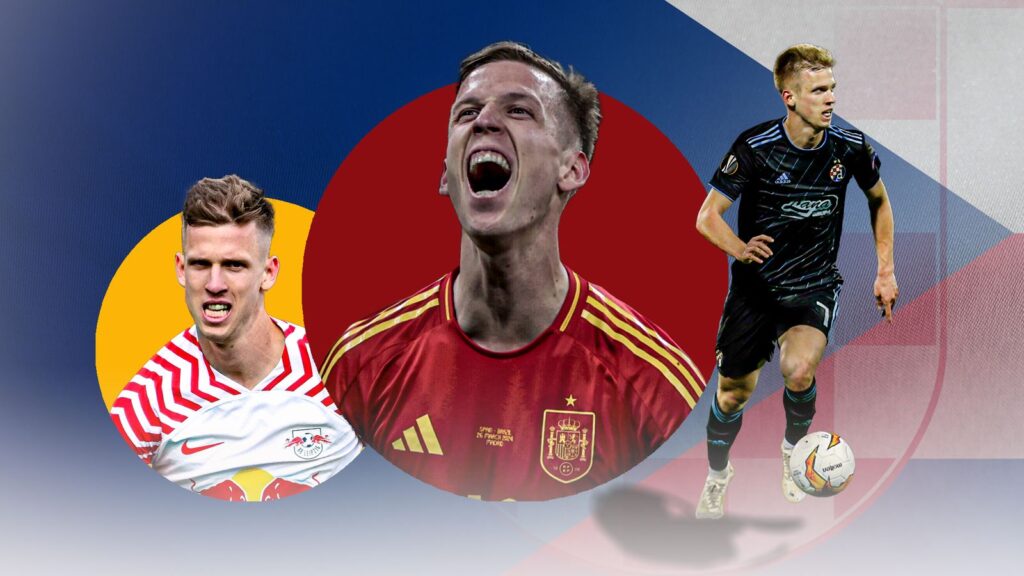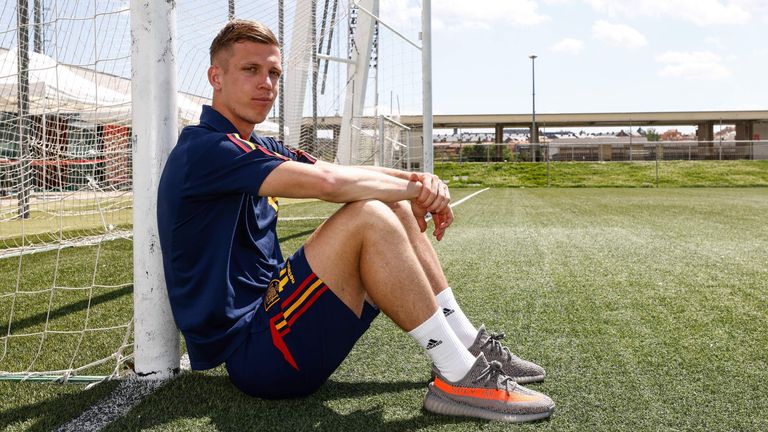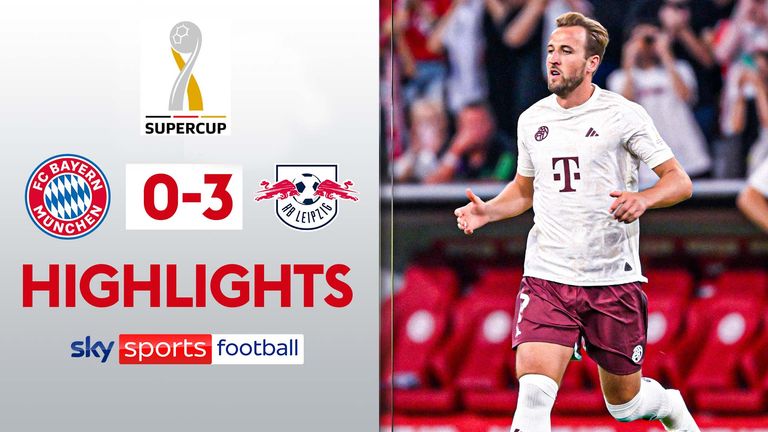When Spain kick off their Euro 2024 campaign against Croatia in Berlin, the identity of the opposition will mean more to Dani Olmo. He was 16 when he moved to Zagreb. “Would I be the player I am now if I would have stayed? I think not,” he told Sky Sports.
Olmo had been a young hopeful in Barcelona’s famed academy, dreaming of following Andres Iniesta and so many before him into the first team. But this future Spain international midfielder, now a regular for the national side, took a different route to the top.
The move to Dinamo Zagreb in 14 was as unusual then as it is now. Financial realities mean that the familiar journey is from east to west. But Olmo and his family identified another path for him, one that they hoped would fast-track his progress.
It worked, proving to be a learning experience on the pitch and off it. Olmo would go on to spend six seasons in Croatia during which he made over 100 appearances for the first team, winning multiple trophies and growing as a player and a person.
“In Croatia, it was another culture and I learned a lot physically. In Spain, it was more about the ball, especially at Barcelona when I was young in the academy. I learned things in Croatia. I also learned a lot of things here in Germany. It is all part of the process.
“But Croatia, in particular, helped me a lot. I was 16 and training with national team players who had played at World Cups. That was such a big step for me. It made me improve as a player physically and mentally because the game was faster and everything.”
Speaking to Olmo earlier this season, before he knew the identity of Spain’s opponents in their group, he was open about the challenges that the move presented as a teenager. Were there really no doubts when making that decision to walk away from Barcelona?
“Honestly, never,” he said. “I knew from the first day that this was my goal. Of course, there were good moments and not so good. This is normal. But after I started playing regularly when I was 18, playing in Europe, everything was perfect. I had made it.”
‘They would have said I was a lunatic’
Speaking to Romeo Jozak about this, the club’s former academy director explained just why Olmo’s move was so seismic. “I love Dinamo, it is my club. But just imagine how hard it was for him to go from Barcelona to Dinamo Zagreb. How can you even compare?”
He added: “When I started in the academy, getting one of Barcelona’s best young players to come to Dinamo would have been impossible. They would have said I was a lunatic. But because of our image, because of our pathway, Olmo made that move.
“Together with his parents, he put the numbers together. He knew he would get a chance at Barcelona B but he had all these names in front of him. His father was humble enough and smart enough to analyse the environment and the clubs all around Europe.
“He realised that we were the ones giving the best young players their opportunity. We were doing it for business reasons, of course, because you want to sell the player down the line, but the pathway was there for him. There was a pure logic to it.
“Even so, it was a big decision. Barcelona was sunny but when the planes land in Zagreb in November you have to be careful. Croatia has nice weather generally but where the capital is it can snow and it can rain, it can get very windy and foggy there.
“But he kept fighting and performing, showing this ambition. As a teenage kid, he must have had doubts, but his parents and his representatives had a vision and he stuck at it, I have not seen that often. You have to respect that decision. He deserves huge respect.”
Olmo’s connection to Croatia remains
That respect should be mutual when the game in Berlin comes around. Olmo’s ties to Croatia remain. When he joined the Common Goal initiative, he chose to donate one per cent of his salary in support of a charity helping victims of conflict in the region.
That respect should be mutual when the game in Berlin comes around. Olmo has gone on to success in Germany, becoming a key player for RB Leipzig and is now being linked with a move to bigger clubs as his career continues to progress. But ties to Croatia remain.
When he joined the Common Goal initiative, the pledge-based charitable movement launched by Olmo’s compatriot Juan Mata in 2017, he chose to donate one per cent of his own salary in support of a charity helping victims of conflict in the region.
“I have been collaborating with them for a long time. I wanted to help because I feel really attached to Croatia. As a player but as well as a person. I wanted to give back a little of what they gave me. I have had this opportunity to help. It is a nice experience for me.”
It is a further reminder that while he will be wearing the red of Spain, he is a product of both nations. Indeed, for Jozak and others within Dinamo Zagreb, the sense of pride at his success is particularly strong. “Who produced him? Not Barcelona. We did.”






